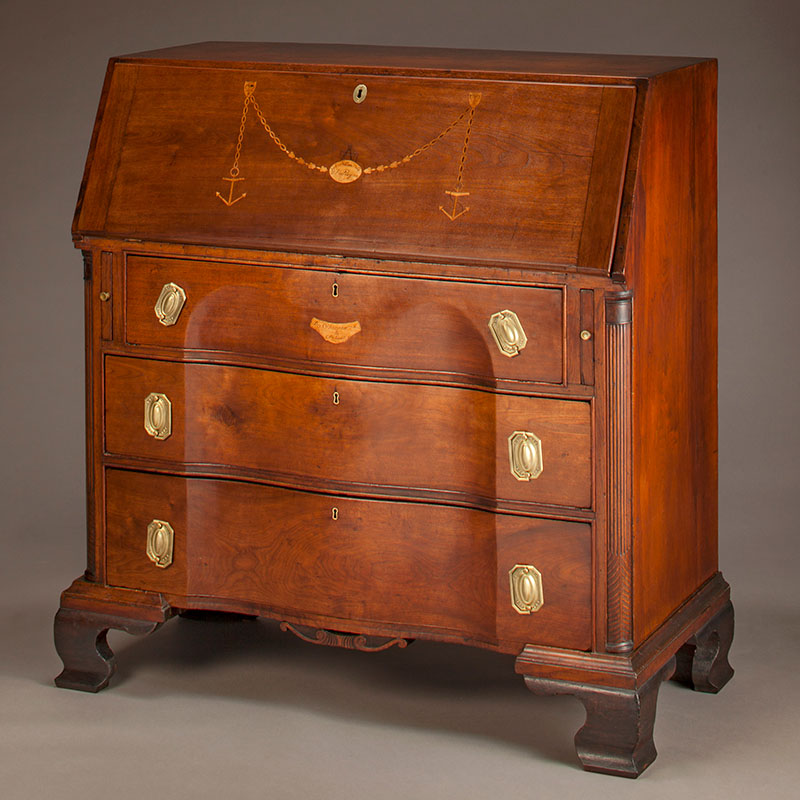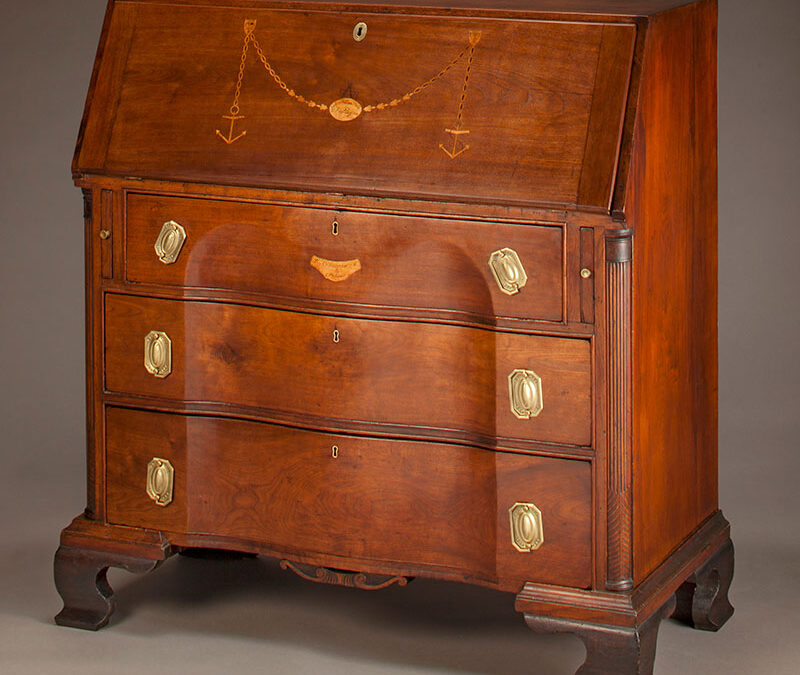Fall-Front Desk

| Maker | John Shearer (Scottish-American, active 1790-1820) |
| Date of Creation | 1808 |
| Location | Frederick County, Maryland |
| Materials | Walnut, oak, yellow pine, tulip poplar |
| Institution | Museum of the Shenandoah Valley |
| Credit Line | N/A |
| Accession Number | 2023.12 |
| Photo Credit | Photo by Ron Blunt |
In the early national period, emerging factionalism split many Americans along lines advocating closer economic connections to France or Britain, respectively. Joiner John Shearer unabashedly extolled his pro-British sentiments through the use of decorative inlays and inscribed messages on objects like this fall-front desk. Shearer made the desk in 1808 for Philip Stover, a blacksmith and farmer living in Frederick County, Maryland. Inlaid on the desk’s fall-front are symbols of British naval might: suspended fowled anchors joined to a central medallion reading “Lord Nelson and / Victory.” The inscription refers to the English naval hero of the Napoleonic era, Vice-Admiral Horatio Nelson, and the HMS Victory, Nelson’s flagship during the decisive 1805 Battle of Trafalgar. Research by Elizabeth Davison indicates that Shearer—a “True North Britain” by his own description—kept up with European wars through newspapers in the areas in which he worked: the northern Shenandoah Valley, western Maryland, and Loudoun County, Virginia. However, Shearer’s inscriptions referencing Nelson are not the only ones found on the desk. Hidden in the recessed channel built for one of the desk’s tambour doors is a note inscribed by Shearer, where the joiner comments on local personalities and events. Shearer offers a positive estimation of his client, “an Honest Dutchman of the Name of Philip Stover.” Concluding the note is the phrase: “not Forgetting a Sarha Skaggs the Bigest Whor in this County Lived there at the time.” New research indicates that Shearer may have been referencing a 1792 Frederick County court case in which “Negro Jack,” a man enslaved to Samuel Thomas, was convicted of “committing a rape upon the Body of Sarah Skaggs, by information of the said Sarah.” Unable to testify in his own defense due to his enslaved status, Jack’s case and Shearer’s commentary on it highlights the uneven power dynamics of enslaver and enslaved, white and Black, mere decades after the adoption of the national words, “all men are created equal.” Additional research into this new discovery and Jack’s life is ongoing.

